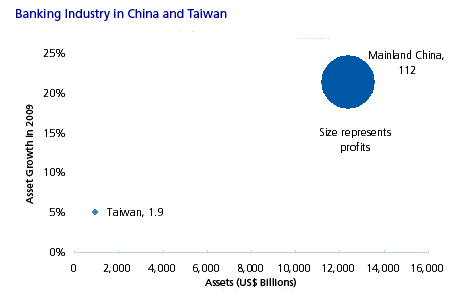Financial Linkages Between China and Taiwan
Abstract
The financial markets in mainland China and Taiwan are radically different in scale, but increasingly interconnected. Any relaxation or tightening of regulation will bring substantial opportunities or risks to firms in both countries.
Investments by Taiwanese enterprises in mainland China reached US$49.5 billion in 2009. In a new report, Financial Linkages Between China and Taiwan, Celent examines investments and trade between the two regions, as well as regulations affecting the relationship between China and Taiwan.
Taiwan has a small but highly competitive market, while the Chinese market is less competitive but has stricter financial supervision. This environment is encouraging the Taiwanese financial industry to actively penetrate the mainland Chinese market, but progress is slow due to regulatory restrictions. There are currently more than 900 Taiwanese listed companies (73% of Taiwan’s total) investing in mainland China.

“Taiwanese enterprises in mainland China account for more than 20% of new loans and 60% of net interest income for the Taiwanese banking industry,” says Hua Zhang, analyst with Celent’s Asian Financial Services group and author of the report. “If Taiwan's financial firms successfully conduct their business in China, there is potential for significant benefits.”

